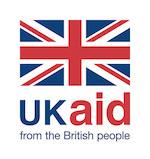This blog was co-written by Jenny Casswell, Research & Insights Director at GSMA M4H and Barnaby Willitts-King, Senior Research Fellow at Humanitarian Policy Group, ODI
The blog is part of a series exploring COVID-19 and its impact on digital humanitarian action.
Last week we were lucky to have three exceptional panellists bring to life some of the key lessons from our respective COVID-19 reports from ODI Humanitarian Policy Group and the GSMA focusing on the impact of the pandemic on the future of digital humanitarianism.
Our panellists brought perspectives from three unique regions; Haiti, Somaliland and Southeast Asia, yet despite their entirely different operating contexts and experiences leveraging technology during COVID-19, their ingredients for digital humanitarianism to create value and impact were distinctly similar. They offered the following advice:
1. Technology is just an enabler: focus on the human elements
Justin Colvard encouraged innovators to always identify the human problems first and layer technology on top. He speaks from experience working with Mercy Corps in Haiti using human-centred design to understand different beliefs and needs along the spectrum of information access and socio-economic status to design content and digital services that meet people where they are. “When COVID reached Haiti – the first step was for teams to understand what communities were going through, and design adaptations to limit exposure in communities.”
This recommendation was reflected in GSMA’s research on COVID-19, which found that for many humanitarian organisations and technology providers, a major lesson when developing information for users is the importance of responding to user preferences and information needs. This includes ensuring content is locally relevant, actionable and disseminated in appropriate formats and channels for the audience. While this is not a new lesson for the sector, the importance of this was reaffirmed in the pandemic.
2. Trust should always be the main dish
Adelina Kamal, Executive Director of the AHA Centre explained that, “digital humanitarianism in the future will only create value if the element of trust is addressed as the main dish and not the side dish!” Trust is a long-term game and building new partnerships during any crises, including COVID-19, is hugely challenging; “it’s not about the technology, it’s about us” and “our problem is not the digital element, it’s trust. We create value only if this issue is addressed.” Adelina encouraged humanitarians to develop trust with communities at the local level, highlighting that we should be creating resilience, not reliance. She warned to “be careful and consider them as partners, not as your contractors. It has to be win-win situation.” Due to restrictions on movement, the pandemic led to increased reliance on local staff; a shift in the humanitarian sector that has been welcomed by many.
3. Invest adequate time in developing digital use cases that provide value
In the HPG report we found that the most effective digital tools employed during COVID-19 have been those already known to work at scale, such as providing digital cash through mobile money. The reasons for this were explained by Mahamud Abdirahman, Business Development & IR Division Director at Telesom, Somaliland’s leading mobile operator, who was a key part in launching the hugely successful mobile money service, Zaad, in the region over 10 years ago. Mahamud explained the long process of establishing trust and value – “in the early days people asked how they could trust digital currency…but as soon as they saw use cases they could use in everyday life, we created the ‘value’ for them and the trust slowly built up.” This user acceptance and familiarity with transacting digitally meant that Zaad were able to quickly and efficiently disburse cash via mobile money on behalf of humanitarian organisations using a voice ID verification platform responding to the pandemic.
Trust and value creation extends beyond service users. The reason that the voice verification platform was so successful, despite it being launched as COVID hit, was due to the long-standing relationship Telesom had developed with CARE and the shared value proposition derived from the innovation, providing cost and time efficiencies for the MNO and CARE.
4. Pay due attention to the heightened risk of exclusion and the digital divide
A key finding from both of our reports was that the pandemic has exacerbated the risk of exclusion and the digital divide. Mahamud acknowledged “COVID has highlighted the division that exists among those who can and those who can’t afford remote or distance learning services for their children during the lockdown,” and although phone line services were provided for free for education sectors to encourage remote learning, Mahamud reiterated that stronger public and private partnerships are needed to improve availability and access to the internet.
Justin presented tangible ways Mercy Corps has been addressing risks of exclusion, through consultation with local partners to present compelling use cases to communities, such as ensuring that voices on Viamo’s IVR service were recognisable to all, including those who are more marginalised, such as women and children.
The future of digital humanitarian action
Reflecting on the future, Adelina shared her view that radical change only happens when the status quo becomes irrelevant. Her hypothesis for slower change in the humanitarian sector is because “not everyone within the system may be comfortable to change the status quo…the humanitarian system is too big and radical change will only come from the outside.”
Could COVID-19 be the external shock that changes the way technology is used in the humanitarian system? Follow the GSMA blog series and ODI HPG to explore this further.
The video recording of the event is available on the event webpage here. The recording is also available in Podcast form on Apple Podcasts, Google Podcasts and Soundcloud.



